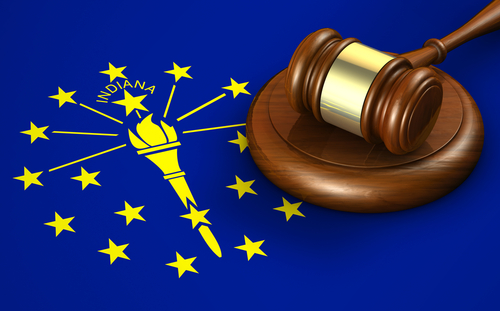Florida nonprofit legal clinic hires Puerto Rican attorneys displaced by Hurricane Maria
.jpg)
The Puerto Rican Bar Association of Florida has opened a nonprofit legal clinic focused on providing legal services to Puerto Ricans who have settled in Florida after fleeing Hurricane Maria—and the clinic is employing displaced Puerto Rican attorneys.
The clinic’s two offices—in Orlando and Miami—opened last month.
“I knew people were going to start collecting supplies like water to send to Puerto Rico,” said Anthony Suarez, who was president of the Puerto Rican Bar Association of Florida when the island endured one of its worst hurricane seasons in recent memory. “But I wanted to do something different.”
The Puerto Rican Bar Association first became involved with hurricane relief efforts with its Student Temporary Assistance and Relocation Program a couple of weeks after Hurricane Maria struck Puerto Rico. This program helped fund the temporary relocation of Puerto Rican law students to law schools—such as Florida State University College of Law and the University of Pittsburgh School of Law—that allowed them to enroll free of charge for a semester after their respective institutions were forced to close.

Anthony Suarez
Meanwhile, according to Florida’s Division of Emergency Management, about 300,000 Puerto Ricans have relocated to the state since early October, Reuters reported in January.
As Suarez thought of how he could find a way to provide these displaced U.S. citizens with affordable legal aid, displaced attorneys from the island heard about the student relocation program and began sending him emails seeking employment.
Suarez realized how he could help both the displaced Puerto Ricans and the attorneys after discovering Chapter 13 of the rules regulating the Florida Bar, the Authorized Legal Aid Practitioners Rule. The rule allows approved nonprofit legal aid organizations to employ lawyers licensed elsewhere for up to one year as long as their work is supervised by a licensed Florida attorney and they commit to taking the next available Florida bar exam.
“Once I found this rule I went, ‘oh my goodness … so I can now hire these lawyers and they can work for us for at least a period of time while they study for the bar,’” he said. “I kill two birds with one stone because I help the displaced Puerto Ricans with culturally competent and bilingual attorneys from the island that can’t find employment in Florida.”
Suarez secured approval from both the Florida Supreme Court and the Puerto Rican Bar Association of Florida’s board of directors to create this clinic. The Hispanic Federation of Florida and the Knight Puerto Rico Fund for Hurricane Relocation at the Miami Foundation provided funding to open the two clinic offices. Suarez says that he and Yesenia Collazo, a member of the Puerto Rican Bar Association of Florida’s board of directors, have also been lobbying in Tallahassee to acquire more money from the state government in order have enough to compensate the clinic’s attorneys. Suarez says he is expecting more funding to come through soon.
The Orlando location has brought on six Puerto Rican attorneys through the Authorized Legal Aid Practitioners Rule, while the Miami location has two and is waiting to hear back from four others. In addition to licensed attorneys supervising the Puerto Rican practitioners, the clinic will also enlist veteran Florida lawyers to volunteer as mentors for these displaced attorneys. Moreover, the office is open to hiring attorneys who are not from the island.
The clinic has already received referrals from agencies that work with the homeless, as many of the Federal Emergency Management Agency vouchers that provided temporary housing for displaced Puerto Ricans have already expired, and the rest of the vouchers are set to expire March 20, the Orlando Sentinel reported. Suarez believes this will keep the clinic busy. Although the focus is on helping displaced Puerto Ricans, the clinic will not turn away others interested in affordable legal help.

Yesenia Collazo
Collazo, who has been named the supervising attorney of the Miami office, believes the experience the Puerto Rican practitioners will receive from working with the clinic will be invaluable.
“They’re getting a lot of hands-on experience under licensed attorneys that have been practicing for Florida for many years,” she said. “The knowledge and the experience that they’re getting while they’re waiting to sit for the Florida bar is crucial.”
The Florida Supreme Court also granted Suarez certification to provide internships to law students who are interested in working for the clinic under Chapter 11 of the rules regulating the Florida Bar. He hopes this will allow him to bring in students from Puerto Rico.
“The University of Puerto Rico was very excited to hear this because all of the clinical programs it has are limited to the island—there are no external internship programs,” he said. “This will be a great opportunity for these students.”
The Puerto Rican Bar Association of Florida will be creating a website for the clinic in the near future.



